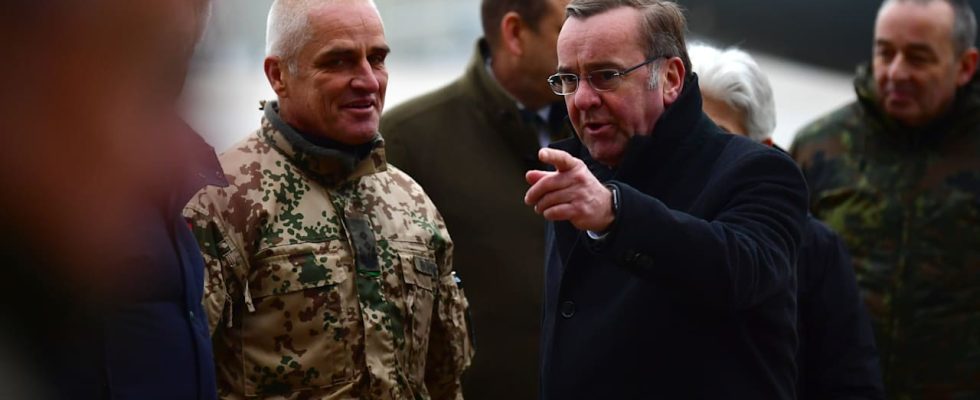This was a worthy reception for the last 304 Bundeswehr soldiers who returned from Mali!
They all applauded: Defense Minister Boris Pistorius (SPD), Defense Committee Chairwoman Marie-Agnes Strack-Zimmermann (FDP), State Minister in the Foreign Office Tobias Lindner (Greens), Bundestag Defense Commissioner Eva Högl (SPD), representatives of the state government of Lower Saxony and Inspector General Carsten Breuer came to Wunstorf Air Base (Lower Saxony).
Defense Minister Boris Pistorius welcomes Colonel Heiko Bohnsack, commander of the last German Minusma contingent in Mali, at the air base in Wunstorf near Hanover
Why is this lengthy list of German representatives necessary? The answer is still shameful: When the last German soldiers returned from Afghanistan in the summer of 2021, there were no high-ranking state representatives there. The defense minister at the time was Christine Lambrecht (SPD).
With their successor Boris Pistorius, the emergency services received their deserved public recognition!
Bitter: During the ten-year UN peacekeeping operation “Minusma” in Africa, three German soldiers were killed and 13 were wounded.
Do Bundeswehr soldiers receive enough respect from politicians and citizens? App users vote here
The soldiers flew from the Senegalese capital Dakar to Wunstorf near Hanover with two A400M military transporters and an A330MRTT.
The UN peacekeeping operation Minusma in Mali was created in spring 2013. The country should be stabilized and a peace agreement between the government and rebels should be made possible.
But the success of the operation is, to put it mildly, low!
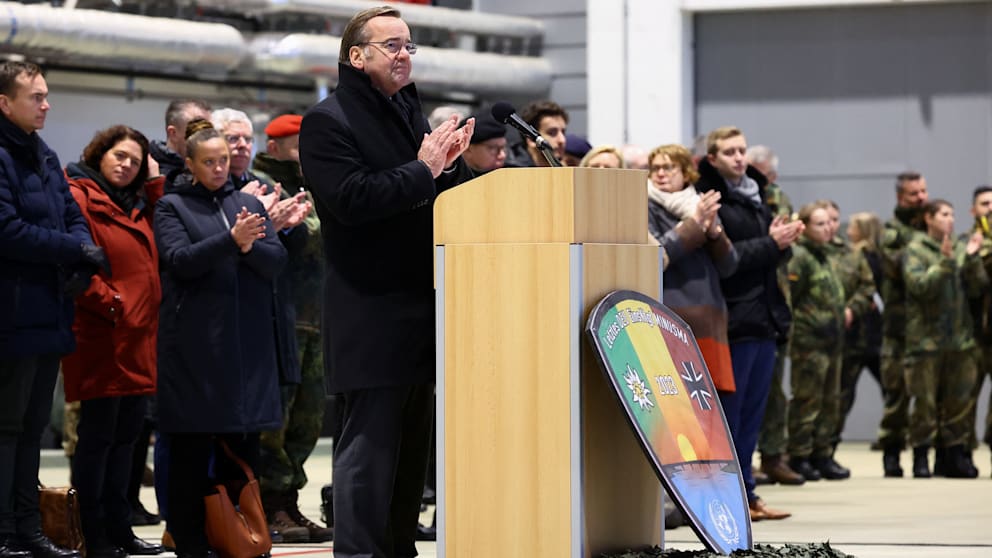
Defense Minister Pistorius applauds along with family members of the returned soldiers.
Security in the Sahel region is “of central importance” for Germany and its allies, even after the withdrawal of the Bundeswehr. Pistorius said this with regard to problems such as terrorism and organized crime and the impact on Germany. In addition, “external forces such as Russia and China” tried to “exercise ever greater influence” there. Germany will “continue to be active and present in the region, but in an adapted form”. He admitted that the mission had not achieved the desired success.
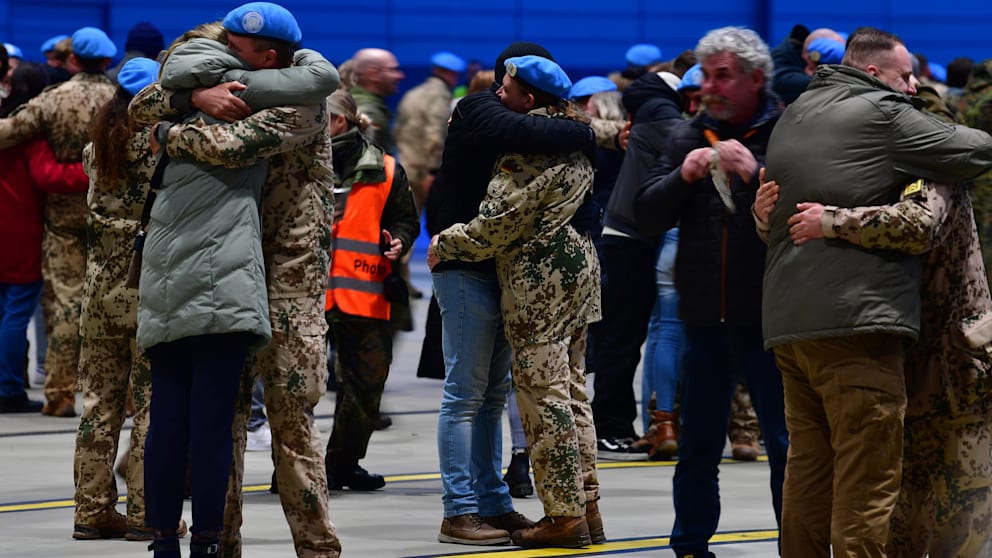
Deep hugs with loved ones in the Air Force hangar
Islamist terrorist groups continue to spread in the Sahel, some of which are allied with Al-Qaeda and the terrorist group Islamic State. A conflict between Mali and separatist Tuareg rebels also threatens to break out again.
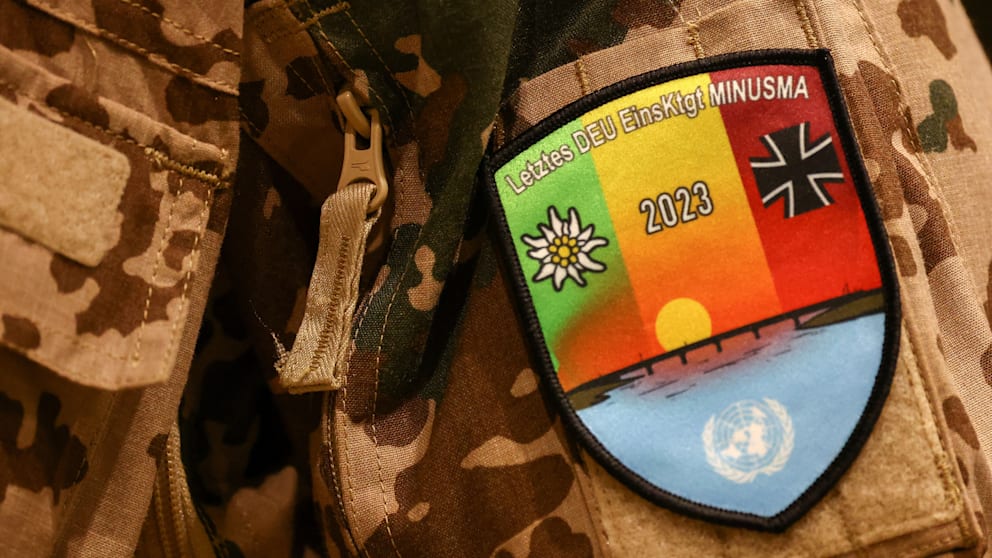
The badge of the last German contingent of the MINUSMA mission
This summer, Mali’s military government nevertheless called for the withdrawal of all around 12,000 UN soldiers. She had expanded cooperation with Russia. The UN Security Council then initiated the end of Minusma. Germany had already decided to end its participation. The withdrawal took months and was complicated by a military coup in neighboring Niger.
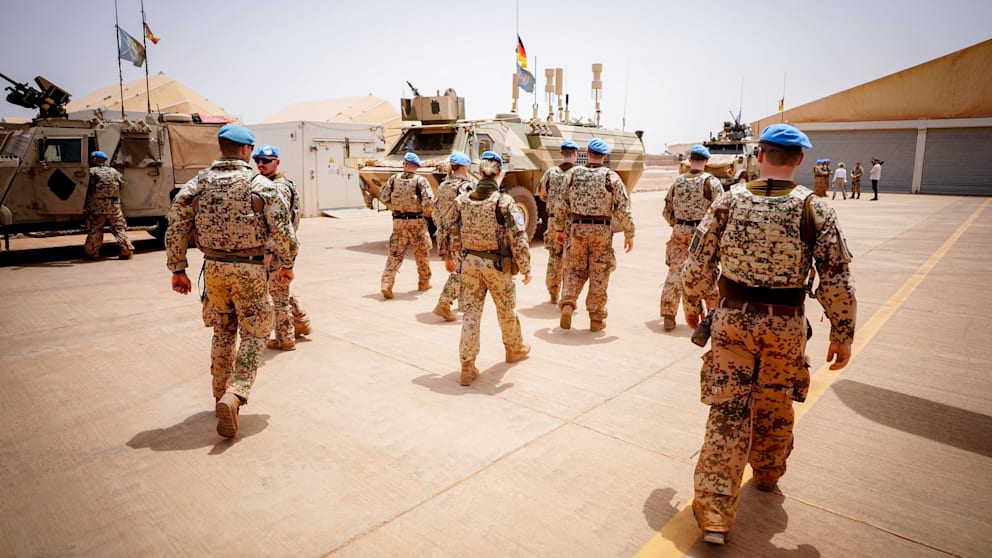
German soldiers in Mali walk to their armored vehicles
For the withdrawal, approximately 1,000 containers of material were brought back to Germany by land, air and sea. This includes around 120 vehicles, five CH-53 helicopters and four Heron 1 drones. According to Pistorius, material worth almost 300 million euros was taken out of the country. About a third of the material remained in Mali for economic reasons.
With the conclusion of Minusma, the Bundeswehr’s second major deployment outside Europe comes to an end after the withdrawal from Afghanistan. The mission in Mali was recently considered their most dangerous mission.
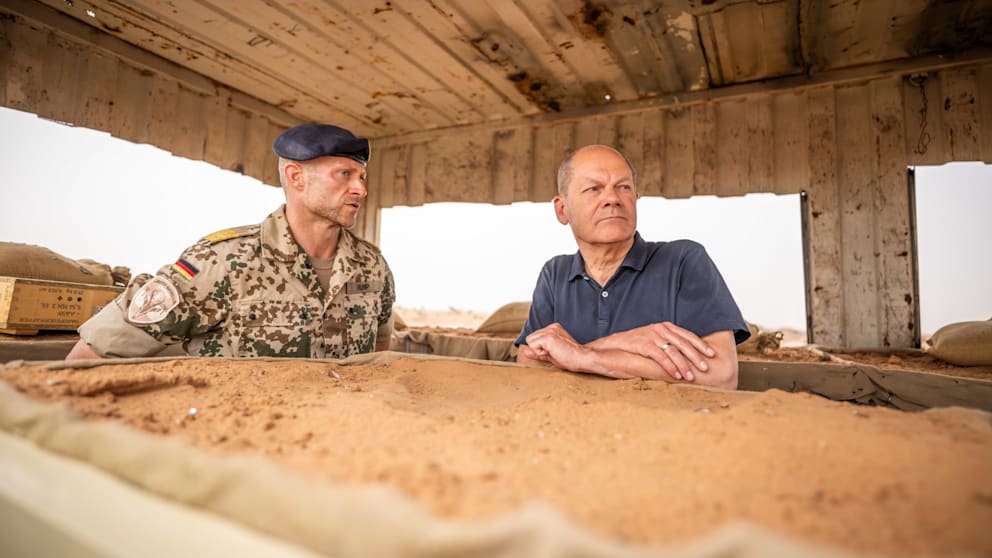
Chancellor Scholz has also visited Bundeswehr soldiers in Niger
But Defense Minister Boris Pistorius doesn’t want to give up the region so easily. He announced a trip to Niger, West Africa, for next week. The country is ruled by a military junta. Even after the end of the Bundeswehr mission in Mali, strategic contacts in the Sahel region are needed, he said in Wunstorf.
There were currently 120 men and women from the Bundeswehr at the Niamey air transport base in Mali’s neighboring country Niger. The future of this contract is uncertain following a military coup in the country. However, several federal government ministers had emphasized that Germany’s commitment to greater stability in the region also served German interests. So far, however, there has been no agreement with those in power in Niamey on a joint approach.
“I think we are well advised to be present on site, to stay in touch, because simply leaving is not the solution,” said Pistorius.

